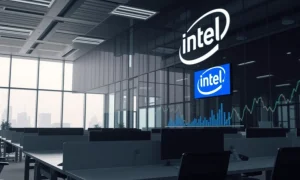Employee retirement and benefits litigation faces mounting challenges under the current legal system. Consequently, legal professionals and policymakers increasingly advocate for a specialized ERISA court. This proposal aims to address persistent inconsistencies in Employee Retirement Income Security Act interpretations.
The Growing Need for ERISA Court Specialization
ERISA litigation has expanded dramatically over recent decades. Federal courts currently handle thousands of employee benefits cases annually. However, judges often lack specialized knowledge in this complex area. Therefore, rulings frequently show significant variations across jurisdictions.
Current Legal Challenges in ERISA Cases
Several factors contribute to the existing legal uncertainties:
- Inconsistent interpretations of plan document language
- Varying standards of review applied by different circuits
- Conflicting precedent on fiduciary responsibility requirements
- Differing approaches to statutory deadlines and procedures
How a Specialized ERISA Court Would Function
A dedicated ERISA court would centralize expertise in employee benefits law. Judges would develop deep specialization through exclusive focus on these cases. This system would ensure more predictable outcomes for plan participants and sponsors alike.
Key Benefits of Judicial Specialization
Specialized courts offer numerous advantages:
- Faster resolution of complex technical issues
- More consistent application of ERISA provisions
- Reduced litigation costs for all parties involved
- Improved development of coherent legal precedent
Addressing Constitutional and Practical Considerations
Implementing a specialized ERISA court requires careful planning. Constitutional questions regarding judicial authority must receive thorough examination. Additionally, practical considerations about court location and jurisdiction need resolution.
Potential Implementation Models
Several models could work for this specialized court:
- National court with regional divisions
- Designated ERISA judges within existing federal courts
- Appellate-level specialization for consistency
- Hybrid approach combining elements of each system
Impact on Plan Participants and Sponsors
A specialized ERISA court would significantly benefit all stakeholders. Participants would gain clearer understanding of their rights and remedies. Plan sponsors would operate with greater certainty about legal requirements.
Expected Outcomes and Improvements
The proposed court would likely produce:
- More predictable litigation outcomes
- Faster claim resolution processes
- Reduced incentive for frivolous lawsuits
- Improved compliance guidance for plan administrators
Frequently Asked Questions
What is ERISA?
The Employee Retirement Income Security Act establishes minimum standards for pension and health plans in private industry.
Why does ERISA need a specialized court?
ERISA involves complex technical provisions that benefit from judicial specialization and consistent interpretation.
How would cases reach the ERISA court?
Cases would likely originate in the specialized court or transfer from federal district courts depending on the implementation model.
Would this court handle all employee benefits cases?
The court would focus specifically on ERISA-related claims, potentially including both pension and welfare benefit plans.
How long would implementation take?
Establishing a new court system typically requires congressional action and could take several years to implement fully.
What are the main opposition arguments?
Opponents cite concerns about constitutional authority, cost, and potential for overly specialized jurisprudence.








